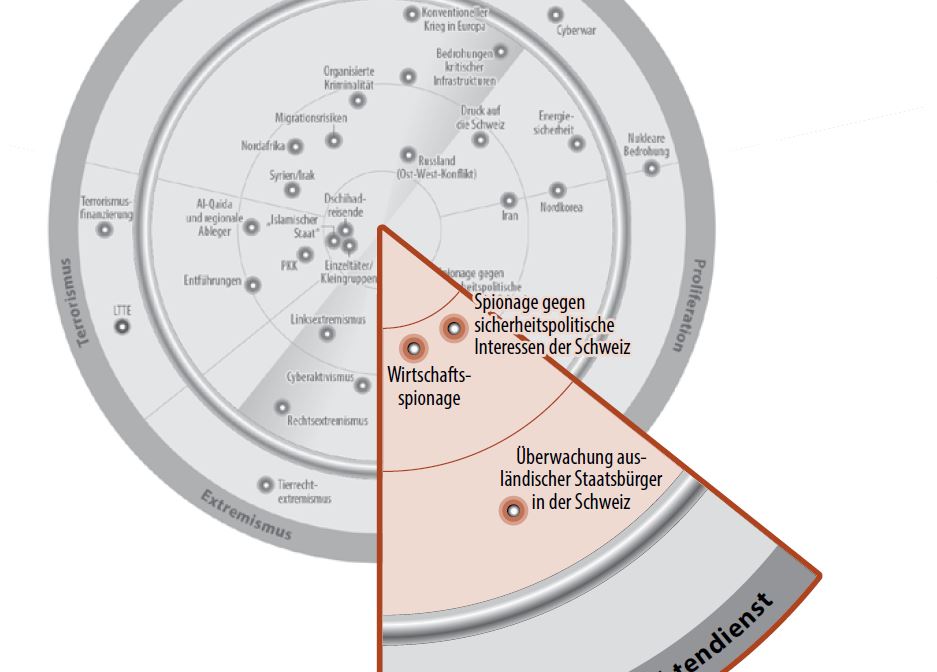Intelligence service presents situation report
Switzerland's security and strategic environment is characterized by an exceptionally high burden of various crisis situations in Europe, writes the Federal Intelligence Service. Its annual situation report is intended to help provide security policy orientation.

The crisis situations in the Near and Middle East have a direct impact on Europe and Switzerland as escalated migration movements and increased terror threats. Islamic State" has assumed the leading role in jihadist terrorism. A further increase in the terror threat results from the fact that it sends people to Europe whom it has commissioned to carry out attacks or plan attacks. The Federal Intelligence Service (FIS) already pointed this out publicly at the beginning of November 2015. The subsequent attacks in Paris and Brussels have unfortunately confirmed its threat assessment. The terror threat remains elevated for Switzerland as well. Switzerland or Swiss interests abroad are not primary targets of an attack commissioned or organized by "Islamic State." Nevertheless, Switzerland is part of the Western world perceived by jihadists as hostile to Islam and thus remains a possible target of terrorist attacks. Interests of states participating in the military coalition against the "Islamic State" as well as Russian and Jewish/Israeli and Arab interests on Swiss territory are increasingly threatened.
The crisis situation with Russia has already been developing for several years. In all likelihood, the West's conflict with Russia will change Switzerland's strategic environment in the long term and reduce the realistic security policy development options in Europe to two broad categories: the formation of zones of influence or gradual escalation. Information operations are also gaining greater importance in this context.
Industrial espionage: FIS raises awareness with short film
Prohibited intelligence remains a threat, regardless of whether it is conducted by traditional means or as cyber espionage: the pressure on information worthy of protection is not abating in Switzerland either. As part of the Prophylax prevention and awareness program, the FIS has been sensitizing Swiss companies, universities and research institutes to the threats and risks of espionage and proliferation since 2004. In this context, the FIS had the short film "Im Visier" ("In the Sight") about industrial espionage made. This film was produced on behalf of the ZEM (Center for Electronic Media). "Im Visier" is intended to help protect the Swiss work and research center from unwanted data leaks and damage to its reputation. The film is available on the VBS website of the NDB can be retrieved.
In the area of nonproliferation, an agreement was reached with Iran on its nuclear program, thus overcoming a challenge. It should prevent a nuclear-armed Iran for the next ten to fifteen years. But this does not mean that the task of nonproliferation loses any of its weight.
China as focus
The focus of the NDB in the this year's edition However, the focus of its status report is on a country that has undergone an enormous strengthening phase over the past thirty years: China. The country's economic strength has made it more self-confident and it is increasingly asserting its influence worldwide. As China's international engagement grows, contacts with Switzerland are also increasing - from both sides.
Source: Federal Department of Defense, Civil Protection and Sport









